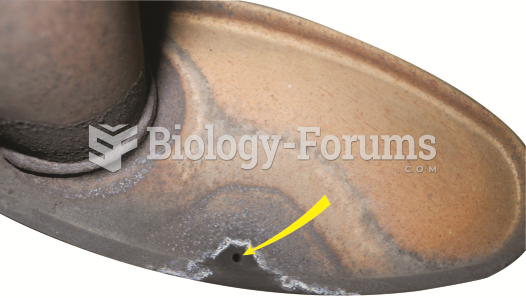|
|
|
There are more bacteria in your mouth than there are people in the world.
The familiar sounds of your heart are made by the heart's valves as they open and close.
Warfarin was developed as a consequence of the study of a strange bleeding disorder that suddenly occurred in cattle on the northern prairies of the United States in the early 1900s.
Bacteria have been found alive in a lake buried one half mile under ice in Antarctica.
Hypertension is a silent killer because it is deadly and has no significant early symptoms. The danger from hypertension is the extra load on the heart, which can lead to hypertensive heart disease and kidney damage. This occurs without any major symptoms until the high blood pressure becomes extreme. Regular blood pressure checks are an important method of catching hypertension before it can kill you.







